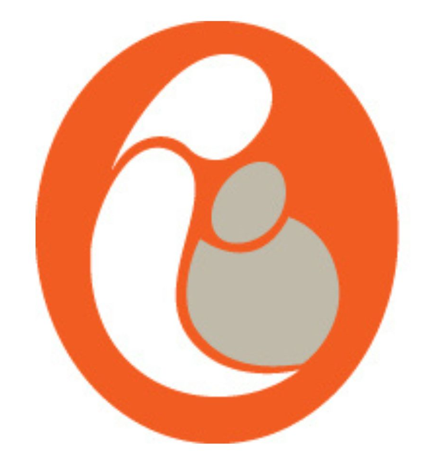Data Collection Platforms
The National Perinatal Epidemiology Centre (NPEC) audits provide a robust framework for the evaluation of current obstetric and neonatal practices and allow for international comparison. Your unit's support for these national initiatives is much appreciated and valued.
In response to requests by a number of units, the NPEC has developed an online facility for electronic submission of anonymised data to an online database. Within the NPEC, all hospital and anonymised patient data will be maintained on a high-security server with access limited to relevant NPEC personnel only. The collection of data using the online databases allows the NPEC to access data in a timelier manner, in addition to providing a specific dataset for local use and assisting hospital audit at local level.
The NPEC currently operates using two online data collection platforms: OpenSky and REDCap. The online database to be used depends on the audit you wish to fill out:
- If you wish to fill-out the Perinatal Mortality Audit form, you will be using OpenSky.
- If you wish to fill-out the Severe Maternal Morbidity Audit form, you will be using REDCap.
- If you wish to fill-out the Registered Home Births in Ireland audit form, you will be using REDCap.
Currently, the NPEC is in the process of moving all of our data collection tools to REDCap, please learn more about REDCap
Data Access Committee
The National Perinatal Epidemiology Centre (NPEC) encourages the use of its data for research purposes. In supplying data, the NPEC must comply with its obligations of confidentiality under the Data Protection Acts of 1988 and 2000 as well as with the General Data Protection Regulation (GDPR) of 2018. The use of the data by the applicant must also be consistent with these Acts and Regulations.
It is the NPEC's policy that all requests for data for research purposes be considered by a committee, termed the "Data Access Committee". All requests will be handled equitably, through the same process, whether the request comes from the NPEC internally or from an external source. It is the NPEC’s policy to have transparency in the decision-making process; in this regard, details of projects for which access has been granted will be published on the NPEC website.
Requests will be considered only from individuals affiliated with an education, healthcare or other research institution. A meeting or consultation with the requester may be required if there are any questions or reservations about the release of data.The NPEC Data Access Committee will be responsible for evaluating all requests for data. The Committee is comprised of a sub-group of the NPEC Governance Committee (formerly the "NPEC National Advisory Group") and represents all relevant parties, including clinical and non-clinical researchers in obstetrics, paediatrics, midwifery and other relevant disciplines/professions. It advises the Director on matters concerning data access by researchers.
Please complete the online form NPEC Data access request form
We will acknowledge receipt of the application and include all further information.
Approved External Projects
Project: Perinatal Mortality in Women of non-white Irish Ethnicity
Project: Multiple pregnancy: An investigation of thE riSk facTOrs aNd outcomEs in the republic of Ireland (The MIlESTONE study)
Project: Study aims use a deprivation index to measure a woman’s level of deprivation based on her residence and analyse whether there is an association between socioeconomic deprivation and risk of stillbirth, assessing for relevant confounding factors
Project: Incidence and outcomes of congenital anomalies in very low birth weight (VLBW) infants born in the Republic of Ireland from 2014-2017
Project: Data related to the indepth clinical audit of major obstetric haemorrhage cases of particular interest are data items related to cause of haemorrhage, demographics,reproductive history, delivery and management of the haemorrhage.
Project: Development and validation of a risk stratification tool for assessment of maternal and neonatal morbidity using data from the NPEC audits.
Project: Access to Very Low Birth Weight Infants data (i.e. Vermont Oxford Network data) with Congenital Heart Disease, 2014-2016.
Project: Request for data on all infants born in Ireland with a diagnosis of congenital diaphragmatic hernia (CDH), 2013-2017.
Project: A comparative analysis of Robson TGCS groups between the Hessen region in Germany and Ireland in 2015.
Project: An analysis of perinatal deaths in which the main cause of death is congenital anomaly, 2008-2016.
Project: An analysis of Severe Maternal Morbidity by Robson TGCS (Ten Group Classification System) Group, 2014-2015.
Project: Request for maternal/fetal and neonatal data relating to intrapartum deaths, 2011-2014, all maternal ages and all HSE regions.
General Data Protection Regulation (GDPR)
The National Perinatal Epidemiology Centre (NPEC) processes data as part of its national clinical audits. It is a "data controller" and is committed to complying with the EU General Data Protection Regulation (GDPR) and the Irish Data Protection Bill (DPB) 2018.
The NPEC has an internal team with responsibility to assess the requirements of the GDPR and DPB and to plan a programme of work to achieve compliance. We are working with our partner organisations to ensure this work programme is delivered and we will subsequently revise our policies and procedures as appropriate in order to ensure continuing GDPR and DPB compliance.
Our work programme programme comprises:
- Policy Development: we are reviweing and developing our range of policies to ensure they meet GDPR and DPB standards.
- Data Inventory: we have undertaken an inventory of the data we process and control in order to ensure transparency regarding how personal data is used.
If you would like to make a Freedom of Information Request, please contact:
Catríona O'Sullivan,
Information Compliance Officer,
University College Cork,
Western Road, Cork
Phone: (021) 490 3949.
E-mail: foi@ucc.ie



.png)